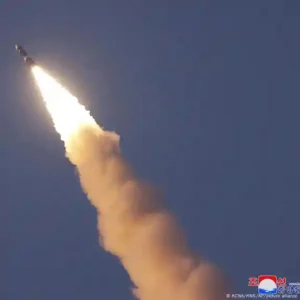Iran has issued a stern warning to its Arab neighbors and US allies in the Persian Gulf, threatening severe retaliation if its territories or airspace are used to aid Israel in a possible attack on Iran. The warning was sent through secret diplomatic channels, aimed at oil-rich states like Saudi Arabia, the United Arab Emirates, Jordan and Qatar, all of which host US military forces, according to the WSJ report.
It came after Israel vowed tough retaliation against Tehran following a barrage of Iranian ballistic missiles aimed at Israel earlier this month. Israeli officials, outraged by the attack, have pushed for retaliatory strikes against Iran’s nuclear and oil infrastructure, which they see as key to undermining Tehran’s aggressive military posture. Iran has vowed to retaliate, threatening Israel’s civilian infrastructure as well as Arab states that could facilitate an attack by Israel or the United States. According to the Wall Street Journal, these countries have expressed to the Biden administration their reluctance to be drawn into a larger conflict by allowing their military infrastructure or airspace to be used in attacks against Iran. Officials in these energy-rich Gulf states fear that their oil installations, traditionally considered under US protection, could become prime targets in the event of an escalation of hostilities. With one of the highest concentrations of US troops stationed in the region, any military action could also endanger US forces.
One of the main concerns of the Gulf states is the possible impact on the global oil market from an escalation of the conflict. A full-scale war between Israel and Iran could disrupt oil exports passing through the Strait of Hormuz, a critical point for global energy supplies. Any interruption in the flow of oil could lead to an increase in energy prices, destabilizing not only the region, but also world markets. According to the WSJ, Arab leaders, including those in Saudi Arabia and the United Arab Emirates, have vowed to avoid engaging in potential military strikes against Iran, fearing repercussions on its oil infrastructure.
In response to escalating tensions, the United States imposed new sanctions on Iran’s oil and petrochemical industries, specifically targeting the “ghost fleet” of Iranian vessels involved in sanctions evasion. The US Treasury and State Departments have designated several companies and vessels involved in transporting Iranian oil, part of a broader effort to cut funding sources that support Iran’s missile programs and regional militias.
“Today’s sanctions target Iran’s efforts to channel revenues from its energy industry into financing deadly and destructive activities, including the development of its nuclear program and ballistic missile proliferation,” the secretary said. of the United States Treasury, Janet Yellen. READ | The Alliance of Abraham against the Axis of Resistance: Who is leading the war between Israel and Iran?
This growing tension complicates the already fragile alliances between the Arab states and Israel. Although these nations share a common desire to counter Iran’s influence, they fear engaging in a direct military confrontation that could engulf the entire region. Some Arab countries, such as Jordan, have already cooperated with Israel and the United States to shoot down Iranian missiles aimed at Israel earlier this year. However, supporting a large-scale Israeli attack on Iranian soil is considered a much more dangerous proposition.




